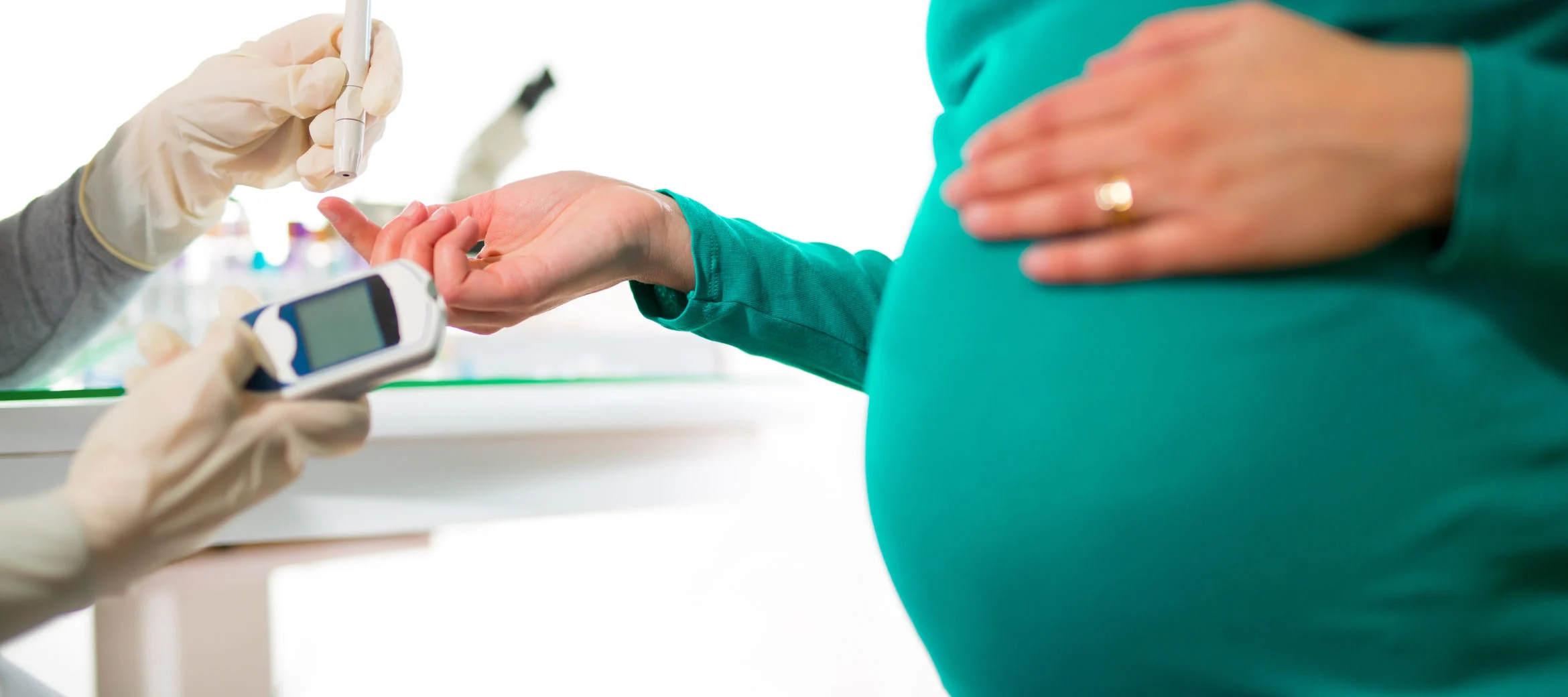
What gestational diabetes mellitus is?
• Gestational diabetes is a disease condition in which women develop diabetes mellitus (high blood sugar level) at the time of pregnancy.
• Every woman has some degree of changes in blood glucose levels as a result of a change in hormones during pregnancy.
• At the time of pregnancy, the placenta plays a very important role in the formation of hormones required for shifting nutrients from the mother to the developing fetus.
• Some hormones of the placenta help in preventing the mother from developing low blood sugar. They resist the action of insulin.
• But throughout pregnancy, these hormones keep on increasing impaired glucose intolerance.
• On trying to reduce blood sugar levels, the body starts making more insulin.
• The pancreas of the mother starts producing more insulin to decrease the effect of pregnancy hormones on blood sugar levels.
• In cases where the pancreas is unable to produce enough insulin blood, sugar levels rise which results in diabetes during the pregnancy.
Which age group is more affected due to gestational diabetes mellitus?
The disease affects almost 3-10% of pregnancies.
What are the causes of gestational diabetes mellitus?
• PCOD (polycystic ovarian disease).
• Already the diabetic patient.
• Family history of diabetes.
• Overweight.
• Mothers giving birth after the age of 35 are moot the on the risk of having gestational diabetes.
• Poor obstetric history.
• Smoking mothers.
• Stress.
• Lifestyle changes.
What are the signs and symptoms of gestational diabetes mellitus?
• Increased thirst.
• Frequent urination.
• Fatigue.
• Lethargy
• Nausea.
• Frequent vaginal, bladder, and skin infections.
• Blurred vision.
How to investigate gestational diabetes mellitus?
• History of the patient.
• Family history of the patient.
• Fasting glucose test.
• Random glucose test.
• 2-hour postprandial test.
• Screening glucose challenge test.
• Oral glucose tolerance test.
• Urinary glucose testing.
How to treat gestational diabetes mellitus?
• Proper and regular monitoring of the levels of sugar is required.
• Care needs to be taken to control low blood sugar levels.
• Medications to be given to control sugar levels.
What is the prognosis of gestational diabetes mellitus?
Gestational diabetes is resolved and a baby is born.
What are the complications of gestational diabetes mellitus?
Gestational diabetes mellitus is a major risk to both mother and child.
• Intrauterine growth retardation.
• Babies born by mothers of gestational diabetes are the risk of developing:
• Jaundice
• High blood cell mass
• Low calcium levels
• High magnesium levels
• Respiratory distress syndrome
• Birth defects
What is the dietary management of gestational diabetes mellitus?
The purpose of treatment and management is to reduce the risk of gestational diabetes mellitus to both mother and child.
• Split the carbohydrate intake over meals and snacks throughout the day.
• Take a more fiber-containing diet like foods with whole grains, fruits vegetables.
• Regular moderate physical exercise
• Regular checkup of blood sugar levels at home
• Drink plenty of water
• Reduce stress

 If you are unsatisfied with our treatment and do not want to continue the medicines you can ask for refund within 24 hours of making the payment.
If you are unsatisfied with our treatment and do not want to continue the medicines you can ask for refund within 24 hours of making the payment.
30 Responses
Nice i really enjoyed reading your blogs. Keep on posting. Thanks
Thank you so much for sharing this wonderful post with us.
A great post without any doubt.
Nice i really enjoyed reading your blogs. Keep on posting. Thanks
Nice i really enjoyed reading your blogs. Keep on posting. Thanks
Nice i really enjoyed reading your blogs. Keep on posting. Thanks
A great post without any doubt.
Thank you for sharing indeed great looking !
The information shared is of top quality which has to get appreciated at all levels. Well done…
Thank you for sharing indeed great looking !
Nice i really enjoyed reading your blogs. Keep on posting. Thanks
Thank you for sharing indeed great looking !
Thank you for sharing indeed great looking !
A great post without any doubt.
The information shared is of top quality which has to get appreciated at all levels. Well done…
The information shared is of top quality which has to get appreciated at all levels. Well done…
Thank you for sharing indeed great looking !
A great post without any doubt.
The information shared is of top quality which has to get appreciated at all levels. Well done…
Thank you so much for sharing this wonderful post with us.
Thank you for sharing indeed great looking !
A great post without any doubt.
The information shared is of top quality which has to get appreciated at all levels. Well done…
The information shared is of top quality which has to get appreciated at all levels. Well done…
The information shared is of top quality which has to get appreciated at all levels. Well done…
Thank you for sharing indeed great looking !
Nice i really enjoyed reading your blogs. Keep on posting. Thanks
A great post without any doubt.
The information shared is of top quality which has to get appreciated at all levels. Well done…
Thank you for sharing indeed great looking !